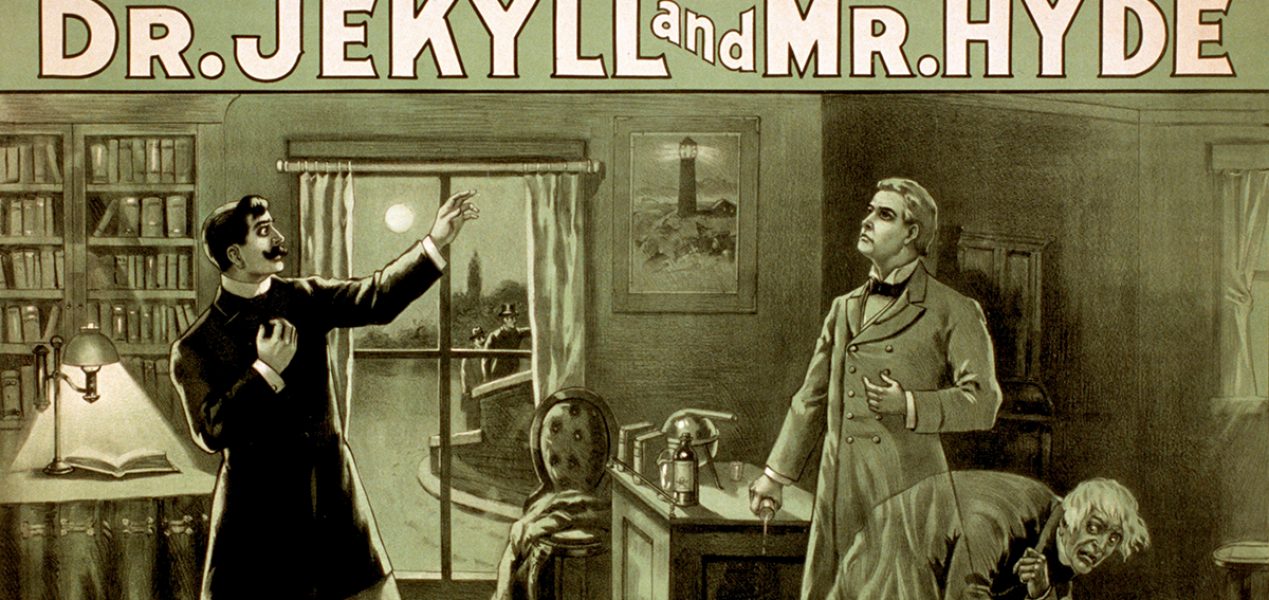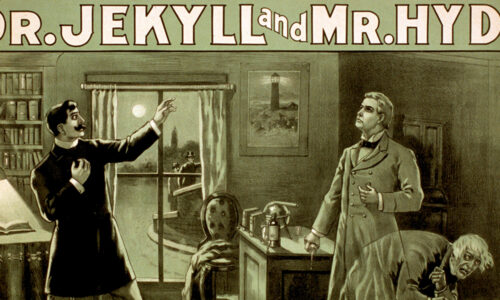The ‘mad scientist’ is one of the most widespread stereotypes in popular culture.
Fictional books and films such as Frankenstein, The Invisible Man or The Strange Case of Dr Jekyll and Mr Hyde have ultimately created a pretty poor image for professionals like us who have dedicated ourselves to scientific fields such as chemistry.
According to a study by Christopher Frayling, who analysed 1,000 films distributed in Great Britain between 1930 and 1980, this may be due to the fact that 30% of the films analysed had an evil character who appeared to have many of the typical features of a mad scientist.
What’s more, the analysis showed that 40% of the threats that instilled fear in viewers were caused by fictitious scientific breakthroughs, compared to the scarce 1% of scientists who were depicted in heroic roles in these films.
The mad scientist cliché has taken such a strong hold in the population that some people are starting to actually believe some of the absurd and completely unfounded urban legends related to chemistry.
As we always say on this blog, advances in chemistry have granted humanity an unquestionable high degree of wellbeing and development.
In fact, if it weren’t for the chemical processes that allow scenes filmed by a cinematography camera to be recorded on celluloid film, many of the films we’re going to discuss in this article would never have been produced.
As you’ve probably guessed by now, in this post we’re going to show you that chemists aren’t as evil as cinema makes us out to be.
5 films about mad scientists
Fiction seems to be particularly drawn to the mad scientist stereotype.
Some films have made their mark in history for how they have depicted chemists as unsettling, evil, or simply diabolical individuals.
Here are our 5 favourite films about evil chemists.
Frankenstein (1931)
The classic horror story based on Mary Shelley’s novel has been reinterpreted hundreds of times in all kinds of formats.
But we’ll dedicate a special mention to the version brought to life by Boris Karloff, which has become rooted in our collective cultural imagination and features the original paradigm of the monster made up of pieces taken from several dead bodies.
Or, if you’re in the mood for a laugh, another option is Young Frankenstein.
Both versions portray doctor Frankenstein as arrogant and obsessed with playing at being God through science…
Dr. Jekyll and Mr. Hyde (1931)
Though dozens of versions have been made, the very best is, without a doubt, the one directed by Rouben Mamoulian.
Frederic March won an Oscar for his interpretation of a chemist who brews a potion that enables him to separate the most good-natured part of someone’s personality from the most evil one, which everyone carries inside them.
There is also a lively comedy based on this story titled The Nutty Professor (starring Jerry Lewis).
X: The Man with the X-ray Eyes (1963)
Professor Xavier experiments with a substance that, when applied to the eyes, enhances vision far more than normal.
However, as always occurs in these types of films, the experiment spirals out of control when he tests it out on himself. And that is when his eyes start to see with X-ray vision…
Directed by Roger Corman and starring Ray Milland, it is another classic horror film based on the stereotype of a pretentious scientist without any qualms about experimenting on himself because he is so confident in his discovery.
Wonder Woman (2017)
Wonder Woman faces off against the evil scientist Doctor Poison, who aims to use her chemical experiments to create a super army that Germany can use to win the First World War.
The comic book character, played by Spanish actress Elena Anaya, fulfils all the traits of a mad scientist who creates widespread panic due to her evil intentions (and also because of her disfigured face hidden behind a mask).
Hollow Man (2000)
Hollow Man is another film that has successfully portrayed the archetype of the mad scientist blinded by pride.
Based on H.G. Wells’ story The Invisible Man, Paul Verhoeven’s version, starring Kevin Bacon, shows how a megalomaniac scientist decides to experiment with his recently created invisibility serum on his own body.
When he realises that the serum works, he takes advantage of the fact that no one can see him to wreak havoc.
Differences between professional chemists and evil film characters
The stereotype of a chemist who uses science to do evil is based on the advances that started occurring during the Industrial Revolution.
This stereotype had lain dormant since the Middle Ages, when alchemy —a protoscience that used components of chemistry— was associated with magic, mystery, and esotericism.
For one reason or another, the following are some of the most inaccurate elements that are perpetuated in almost all horror films:
- Anything is possible with science: in all films featuring a mad scientist there seems to be an underlying idea that we believe we are all-powerful gods. Though it is absolutely true that chemistry has advanced by leaps ad bounds, in no way do chemists believe that we are gods that are capable of everything and anything. We are always guided by excellence in our work and are very much aware of our limits.
- Scientists go mad in pursuing their obsessive goals: with the exception of some chemists who have become too obsessed with their work, it is far more normal for chemists to stay objective and sane while practicing our profession.
- They have no qualms about practicing on themselves: chemists in films are so convinced of their success that they have no doubts about testing out their developments on themselves. This is definitely not even contemplated in the scientific method given that there are other means to finding out whether or not an experiment works.
- The success of their experiments does not lead to the wellbeing of society: in contrast to what happens in films, where the evil chemist’s successful experiments lead to terrible consequences for humanity, professionals in the chemical industry always work with the wellbeing of society in mind. Our goal is to improve objective conditions for the development of the society in which we live.
- The consequences of science result in terror: the consequences of a scientific experiment cause fear and horror. This essentially occurs because the mad scientists have breached their ethical limits due to arrogance or ego. Conversely, as chemistry professionals, we always work according to specific ethical premises that must never, under any circumstances, be violated or bypassed.
- Some fictional scientists are based on real people: we can’t deny that, throughout history, there have existed some crazy, eccentric scientists, and some with questionable ethical limits. However, the vast majority are normal, balanced individuals. What’s more, that fact is no excuse for stigmatising an entire sector or group.
With that said, we want to clearly show the indisputable contribution that chemistry has made to the scientific and social advancement of society, despite how often people insist on likening us to such unfounded stereotypes.
It’s important to remember that fiction is based on fantasy and is created for entertainment. Therefore, you are sure to find many hours of enjoyment and delight in all the films and novels mentioned in this article.
But just remember, professionals in the chemical industry are nothing like the characters portrayed in these films.
If you’d like to find out more about some of the services offered by Grup Barcelonesa, do not hesitate to contact us.

